David A. Monge
ITIC, Universidad Nacional de Cuyo. Mendoza, Argentina
Reinforcement Learning-based Autoscaling of Workflows in the Cloud: A Survey
Jan 27, 2020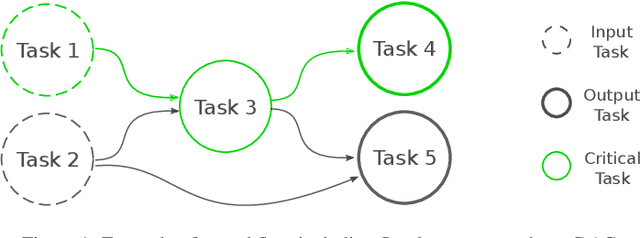
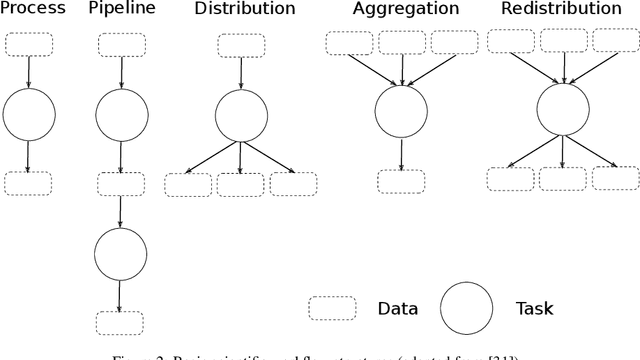
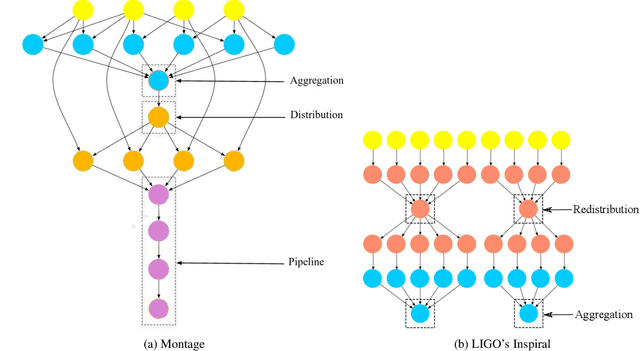
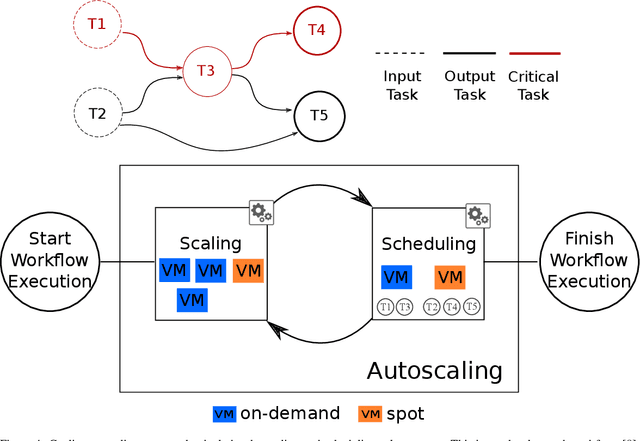
Abstract:Reinforcement Learning (RL) has demonstrated a great potential for automatically solving decision making problems in complex uncertain environments. Basically, RL proposes a computational approach that allows learning through interaction in an environment of stochastic behavior, with agents taking actions to maximize some cumulative short-term and long-term rewards. Some of the most impressive results have been shown in Game Theory where agents exhibited super-human performance in games like Go or Starcraft 2, which led to its adoption in many other domains including Cloud Computing. Particularly, workflow autoscaling exploits the Cloud elasticity to optimize the execution of workflows according to a given optimization criteria. This is a decision-making problem in which it is necessary to establish when and how to scale-up/down computational resources; and how to assign them to the upcoming processing workload. Such actions have to be taken considering some optimization criteria in the Cloud, a dynamic and uncertain environment. Motivated by this, many works apply RL to the autoscaling problem in Cloud. In this work we survey exhaustively those proposals from major venues, and uniformly compare them based on a set of proposed taxonomies. We also discuss open problems and provide a prospective of future research in the area.
CMI: An Online Multi-objective Genetic Autoscaler for Scientific and Engineering Workflows in Cloud Infrastructures with Unreliable Virtual Machines
Nov 02, 2018

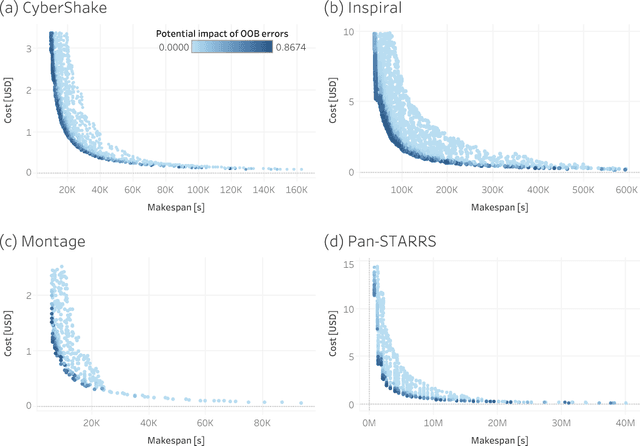

Abstract:Cloud Computing is becoming the leading paradigm for executing scientific and engineering workflows. The large-scale nature of the experiments they model and their variable workloads make clouds the ideal execution environment due to prompt and elastic access to huge amounts of computing resources. Autoscalers are middleware-level software components that allow scaling up and down the computing platform by acquiring or terminating virtual machines (VM) at the time that workflow's tasks are being scheduled. In this work we propose a novel online multi-objective autoscaler for workflows denominated Cloud Multi-objective Intelligence (CMI), that aims at the minimization of makespan, monetary cost and the potential impact of errors derived from unreliable VMs. In addition, this problem is subject to monetary budget constraints. CMI is responsible for periodically solving the autoscaling problems encountered along the execution of a workflow. Simulation experiments on four well-known workflows exhibit that CMI significantly outperforms a state-of-the-art autoscaler of similar characteristics called Spot Instances Aware Autoscaling (SIAA). These results convey a solid base for deepening in the study of other meta-heuristic methods for autoscaling workflow applications using cheap but unreliable infrastructures.
 Add to Chrome
Add to Chrome Add to Firefox
Add to Firefox Add to Edge
Add to Edge